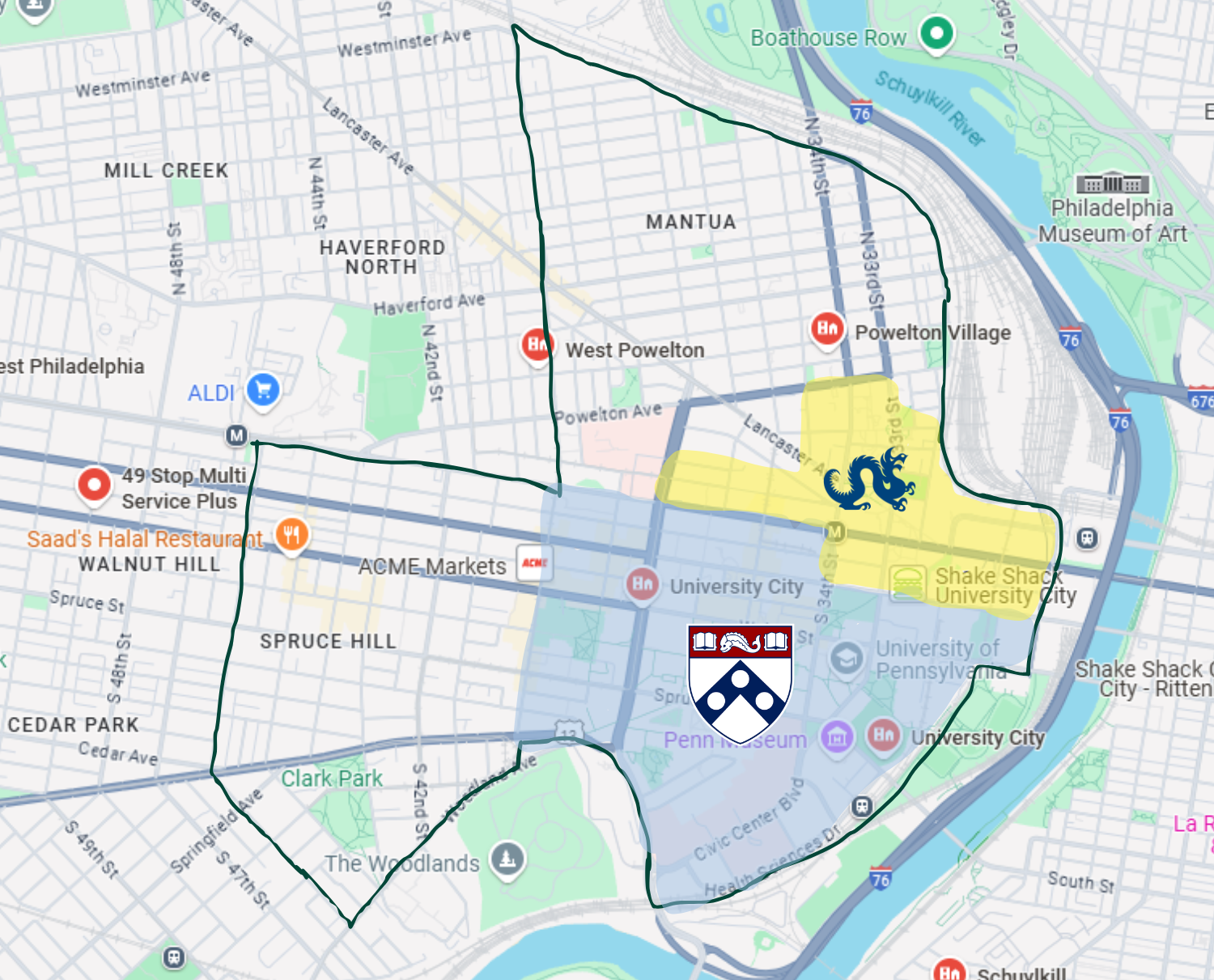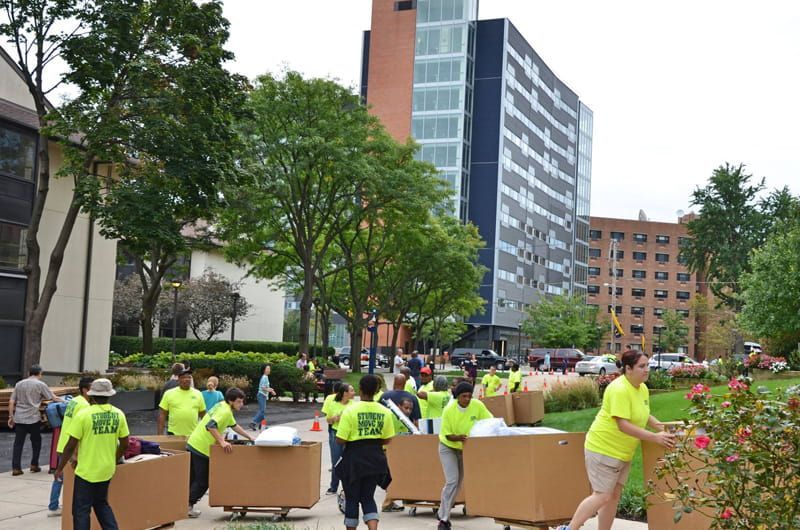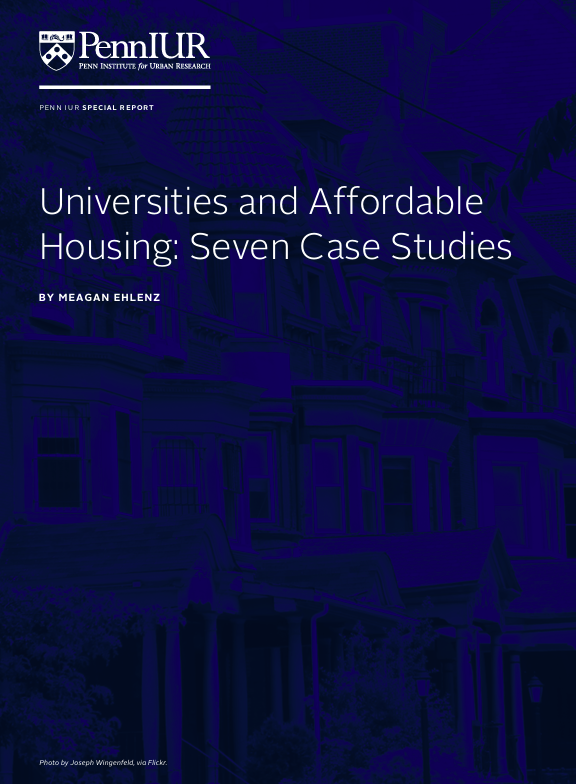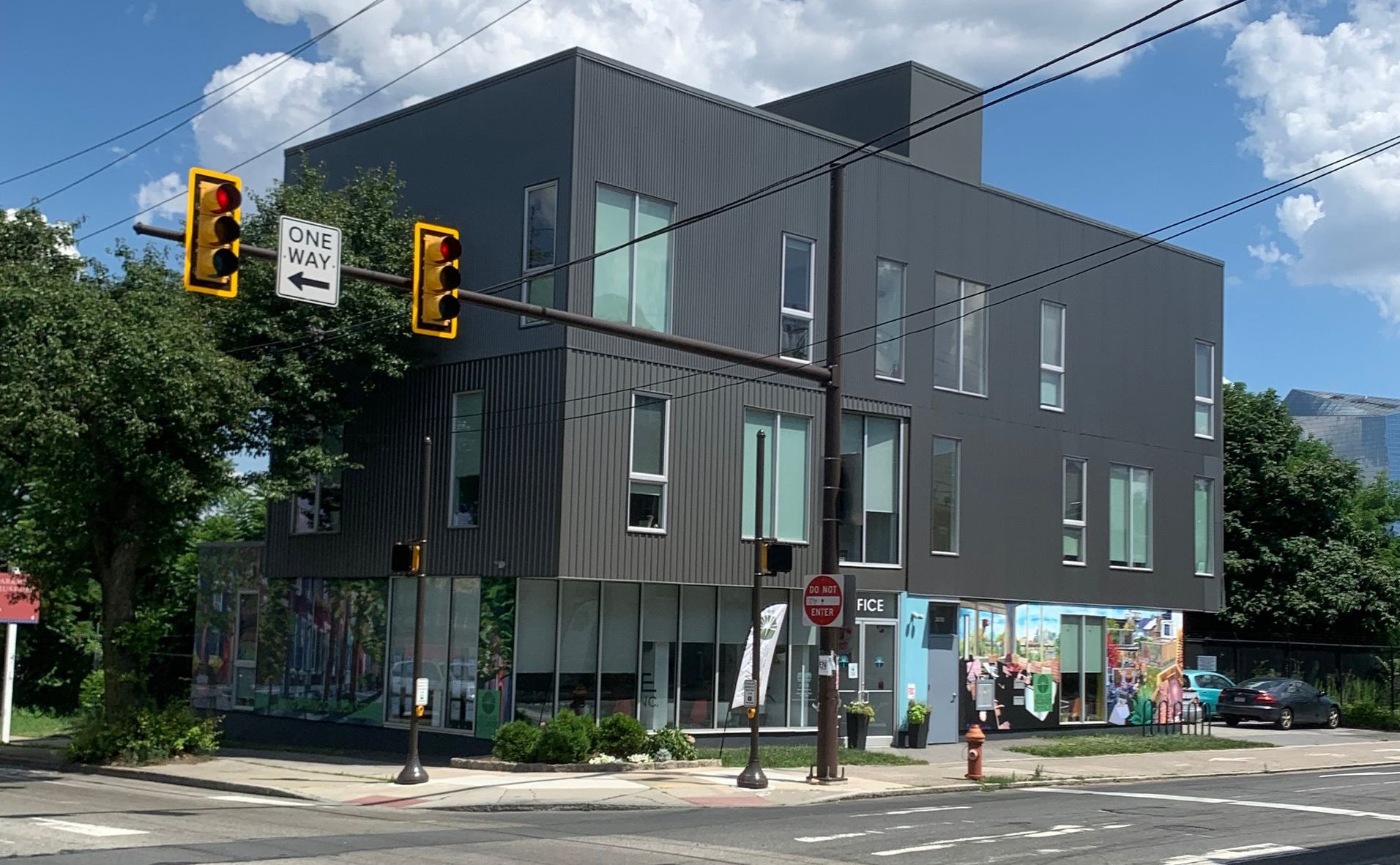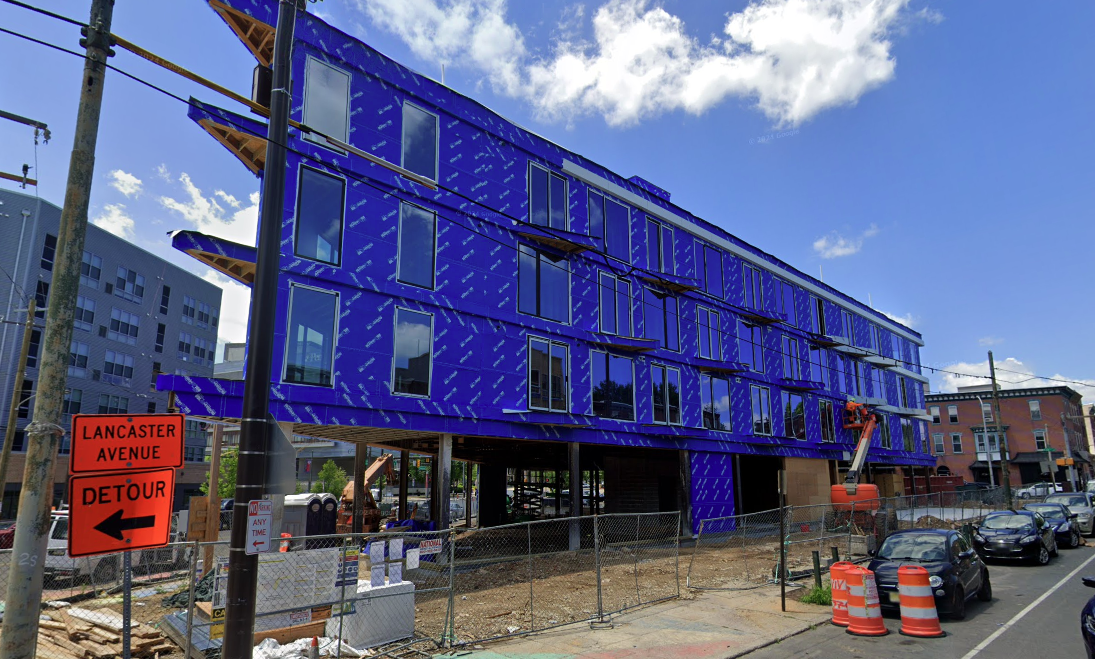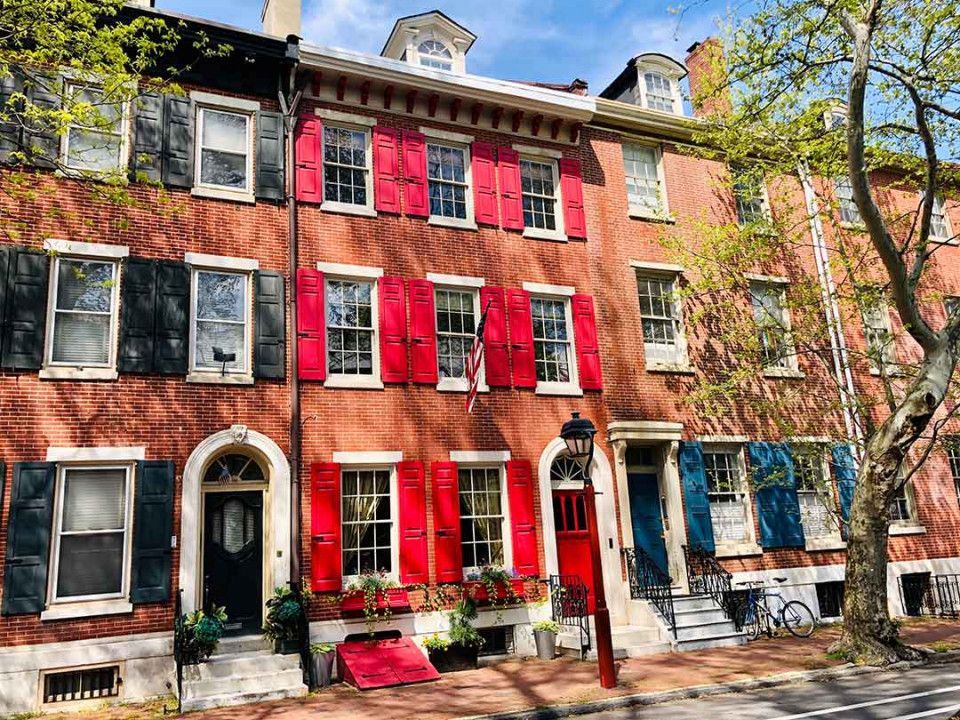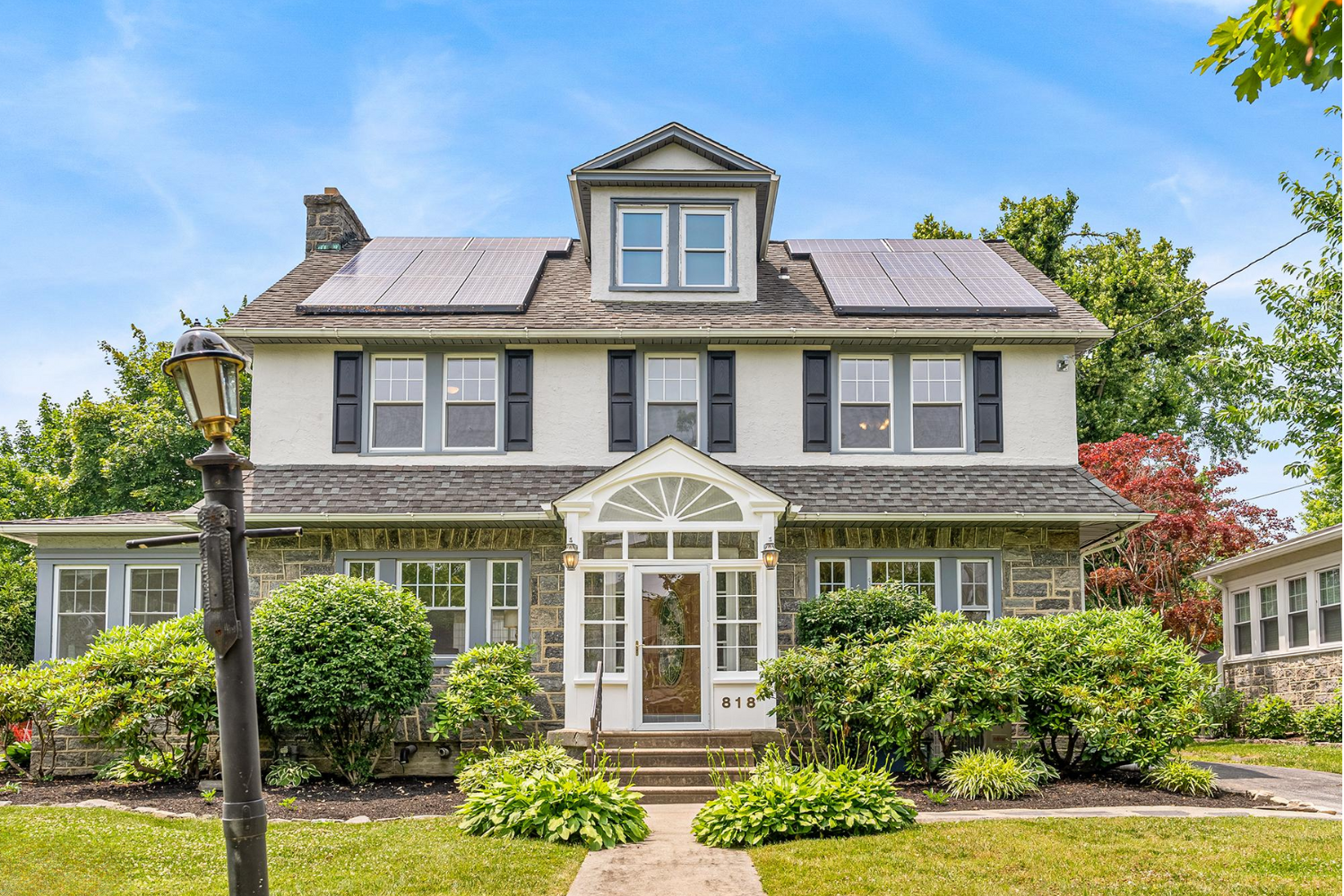Drexel and UPenn Have a Massive Impact on West Philly Rentals
The impact that local universities like Drexel and UPenn have on demand, prices, and development in West Philly's rental market is bigger than you think.
BY
TYLER KEOUGH
| New Age Realty Group, Inc. | February 12, 2025
Drexel University and the
University of Pennsylvania host over 50,000 students annually, creating a visible impact on surrounding neighborhoods like
University City,
Powelton Village,
Mantua, and
Spruce Hill.
The effect of these institutions on the local rental market has been major, influencing demand, pricing, turnover rates, lease renewals, and even the culture of surrounding neighborhoods.
Demand & Turnover Rates
Despite both universities requiring first and second year students to live in campus-affiliated housing, their
on-campus housing is limited and does not accommodate their entire student-base.
This means that
tens of thousands of students in their 3rd through 5th years at these schools are in the local rental market, with most staying close to campus for convenience.
As a result, the area is now home to numerous apartment complexes, with
even more emerging as new construction projects reach completion—a surge driven by the pre-2022 rush to take advantage of the 10-Year Tax Abatement before it was revised.
Student housing leads to high tenant turnover rates, typically on a yearly basis. While this can mean consistent demand, it also requires landlords to frequently invest in property maintenance and marketing. While rental vacancy across the city is
relatively low at 4.3%
as of January 2025, we anticipate rental inventory to grow, especially in West Philadelphia, as we get into college rental season.
Due to Drexel's
Co-op Program, students who secure jobs outside the Philadelphia area may require shorter lease terms, often opting not to stay beyond a year.
The Impact of American Campus Communities
As part of Drexel's
Two Year Residency Program,
second year students are required to live in a Drexel residence hall, Drexel fraternity/sorority house, or University Affiliated Housing.
The affiliated housing buildings available to students are all owned and managed by American Campus Communities (ACC) right on Drexel's Campus. Both Drexel and UPenn students lease at these buildings, and they have a massive impact on the West Philly real estate market, especially regarding lease renewals.
ACC's
Upper-Class Priority Period allows rising third-year students and above to submit their lease applications,
but their deadline is January 31st. That means,
if you want first dibs at the room you currently live in, you need to know by the end of January.
If someone else took your room from you, it's time to look elsewhere for housing.
This forces companies like ours to send out lease renewals as early as possible to make sure our owners' properties are listed in time for the February/March rush of students looking for housing.
On top of these localized issues, this is the first time Philly is seeing a major shortage of students due to
declining enrollment rates combined with an excess of inventory due to new construction from the Tax Abatement change mentioned above.
For owners of West Philadelphia properties, it is in your best interest to get lease renewals out as early possible to avoid vacancies.
Increased West Philly Rental Prices
The presence of large-scale student housing developments in West Philly, like those created by ACC, has driven up rental prices in the area around Drexel and UPenn.
These properties charge premium rates for features like furnished apartments, in-unit laundry, and upscale amenities.
While they cater to students seeking convenience, their
high prices set a new benchmark for rents across the neighborhood, indirectly increasing the cost of housing even for those not living in such developments.
Smaller landlords often feel the need to compete by upgrading their properties, which leads to higher operating costs and, ultimately, higher rents.
Those who can’t make such investments face challenges attracting tenants in a market increasingly influenced by rising expectations.
This dynamic creates
fewer affordable housing options for residents and shifts the focus of the market toward wealthier renters.
The ripple effect extends beyond student housing, affecting neighborhoods like University City and Mantua. Students seeking cheaper alternatives to high-end housing still drive demand for older, less expensive properties, which allows landlords to increase rents there as well.
Meanwhile, non-student renters, including
young professionals and families, also feel the pinch as the general cost of living rises in the area.
This trend contributes to
gentrification, as rising rents and property values displace long-time residents who can no longer afford to stay. While these developments address some housing needs, they also highlight the need for more affordable housing solutions that consider the broader community and not just students willing to pay premium prices.
Local Property Value Appreciation
Unversity-driven developments like Penn's
Pennovation Works, a 23-acre site along the Schuylkill River, have
transformed former industrial areas into hubs for research and entrepreneurship, enhancing the attractiveness of surrounding properties.
Similarly, Drexel's
Schuylkill Yards, a $3.5 billion master-planned neighborhood, is reshaping University City by introducing new residential, commercial, and public spaces.
As neighborhoods like
University City, Mantua, and Powelton Village benefit from
these improvements, property values tend to rise steadily over time.
The consistent influx of students, staff, and researchers into university areas significantly increases housing demand, leading to property value appreciation.
A study analyzing data from over 13,000 ZIP codes over 21 years found that the presence of universities positively influences local home prices and rents.
These
university-led initiatives not only stimulate economic growth but also create a ripple effect, increasing demand for housing and elevating property values in adjacent neighborhoods.
However, this rapid appreciation has raised concerns about affordability and the
displacement of long-term residents, highlighting the complex impact of university expansions on local communities.
Student-focused Housing & Gentrification
The rapid expansion of student housing near Drexel and UPenn has pushed long-time residents out of historically affordable neighborhoods.
Research from the Federal Reserve Bank of Philadelphia shows that
University City has undergone one of the most significant demographic shifts in the city, with median home prices increasing by over 200% from 2000 to 2020.
Universities have
encouraged high-end real estate development to accommodate students, leading to a surge in luxury housing that prices out lower-income renters.
Data from the City of Philadelphia’s 2023 Housing Report
confirms that rental costs in University City are now among the highest in the city, driven by the demand for student-friendly amenities.
Additionally,
university-affiliated development initiatives, such as Penn’s Home Ownership Services program,
have indirectly fueled gentrification by incentivizing faculty and staff to purchase homes in West Philadelphia. These efforts, while beneficial to university employees, have further intensified property value appreciation and rent increases.
The Penn Institute for Urban Research released a
policy brief examining how 7 universities addressed affordable housing challenges.
The Future of the West Philly Rental Market
As West Philadelphia’s rental inventory continues to grow, landlords and investors should prepare for a more competitive landscape, while tenants can expect more housing options than in previous years. Whether you’re a student searching for the right place to live or an owner looking to maximize your rental investment, being informed is key.
At New Age Realty Group, Inc., we are committed to helping renters, landlords, and investors navigate this ever-changing market.
With decades of experience managing properties in University City and beyond, we’re here to provide expert guidance, reliable property management, and real estate services tailored to your needs.
Reach out to us today to see how we can help you make the most of Philadelphia’s dynamic rental market!

